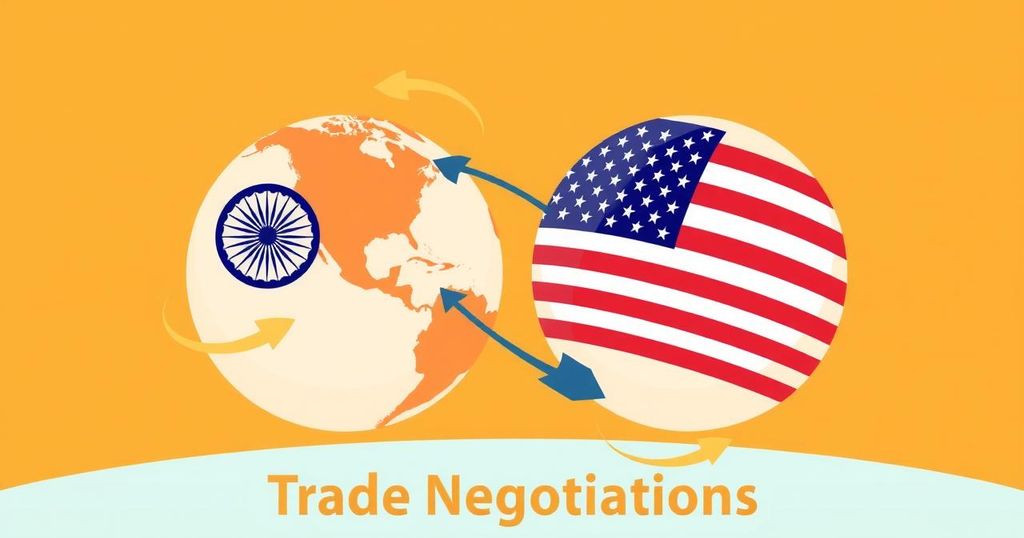India and U.S. Pursue Active Trade Negotiations Under Jaishankar’s Leadership
India and the U.S. are engaged in intense trade negotiations, focusing on key areas such as defense, energy, and technology. External Affairs Minister S. Jaishankar emphasized the importance of finding a fair balance in tariffs while both nations seek an advantageous bilateral trade agreement. Historical U.S. policies have influenced India’s defense procurement strategies, leading to stronger ties with other nations. The current discussions reflect a renewed urgency amid changing global geopolitics.
India and the United States are currently engaged in intense negotiations regarding a bilateral trade deal, as highlighted by External Affairs Minister S. Jaishankar during an event organized by Asia Society. He noted that the Trump administration has shown increased openness towards strengthening partnerships in sectors such as defense, energy, and technology. Despite ongoing discussions, Jaishankar refrained from speculating on the negotiations’ outcomes, emphasizing the strong business rationale behind pursuing a bilateral trade agreement.
Jaishankar acknowledged the challenges of balancing tariffs and U.S. subsidies, particularly in agriculture, but expressed confidence in Indian negotiators understanding the nation’s interests in securing an advantageous deal. He mentioned that prior trade negotiations had been delayed due to the Trump administration’s expectation of a second term and the subsequent disruptions caused by the Covid-19 pandemic. The current discussions are thus characterized by a renewed urgency and scope.
Highlighting defense collaboration, Jaishankar asserted that the Trump administration has become more proactive in forging a security partnership. Previous bureaucratic impediments to India acquiring U.S. military technologies have begun to ease, allowing for a potentially higher-quality defense relationship moving forward. Jaishankar remarked on Trump’s commitment to streamlining access to advanced military technologies for partner nations.
In energy, Jaishankar noted the Trump administration’s focus on ensuring a stable and diverse energy supply for India. He recalled that India commenced importing Liquefied Natural Gas (LNG) from the U.S. around a decade ago and expressed a desire to expand these imports due to the U.S. being a reliable supplier.
Discussions on critical technologies have also been constructive, with both nations recognizing the importance of mobility, talent flows, and building trusted partnerships. Jaishankar underscored the growing sensitivity towards issues such as robust supply chain development within the technology sector, crucial for mutual economic growth.
However, Jaishankar observed a paradigm shift in global geopolitics under the Trump administration. He articulated the notion that the traditional world order has undergone significant changes, with rising tariff wars and stronger export controls disrupting existing international trade dynamics.
Furthermore, Jaishankar explained that past U.S. policies had significantly impacted India’s defense procurement decisions. He stated, “India was importing defense equipment from the U.S. till 1965. It was the U.S. which cut off India in 1965”. Consequently, this historical precedent led India to turn to the Soviet Union and later Russia for its defense needs, shaped largely by U.S. decisions to restrict military supplies.
In conclusion, the negotiations between India and the United States regarding a bilateral trade agreement are marked by active and intense discussions across multiple sectors. Jaishankar’s insights highlight the complexities of balancing economic interests while navigating the historical context of U.S.-India relations, particularly in defense and agriculture. As both nations seek to enhance their partnership, the evolving geopolitical landscape will be pivotal in shaping their future trade dynamics.
Original Source: www.hindustantimes.com








Post Comment